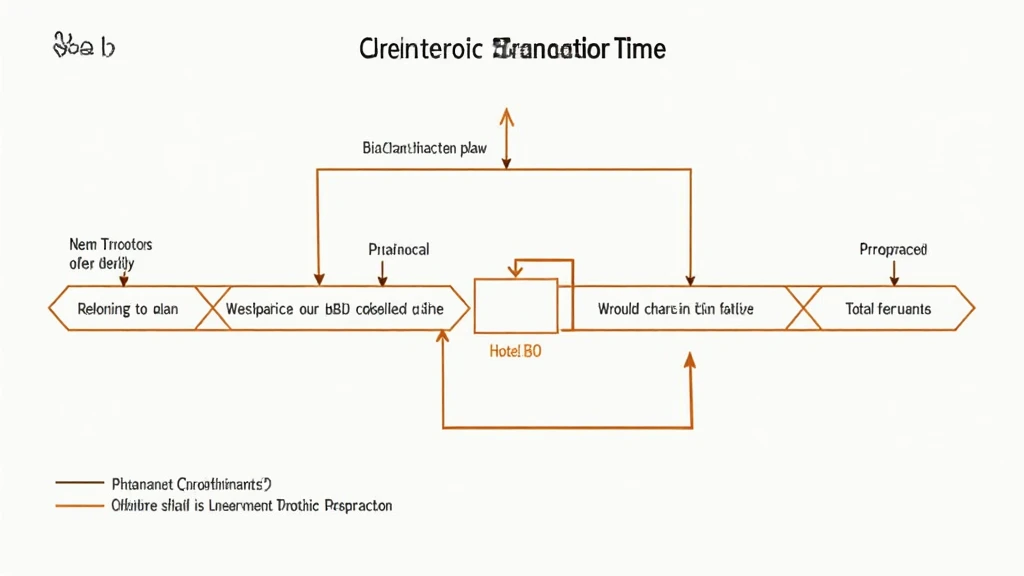Understanding Bitcoin Transaction Confirmation Time: A Complete Guide
Understanding Bitcoin Transaction Confirmation Time: A Complete Guide
In recent years, Bitcoin has become synonymous with digital currency, but many users still find the technical aspects challenging to grasp. One question that frequently comes up is, “What exactly is the Bitcoin transaction confirmation time?” This question highlights a crucial element of Bitcoin and blockchain technology that directly impacts user experience and trust in digital transactions.
With a staggering $4.1 billion lost to DeFi hacks in 2024 alone, understanding Bitcoin’s transaction confirmation time has become more critical than ever. In this article, we’ll break down what confirmation time means, how it works, and why it matters to both casual users and crypto enthusiasts.
The Basics of Bitcoin Transactions
To understand transaction confirmation time, we first need to look at how Bitcoin transactions work. Every time a Bitcoin transaction is made, it must be verified and confirmed by a decentralized network of computers known as nodes.

- Transaction Broadcasting: When you initiate a transaction, it is broadcasted to the Bitcoin network.
- Verification: Nodes compete to confirm the transaction, creating a new block that includes your transaction data.
- Block Addition: Once a block is added to the blockchain, your transaction is considered confirmed.
Each block generally contains multiple transactions, and Bitcoin has a limit on how many transactions a block can handle—this limit is typically 1MB. This factor tied to the Bitcoin protocol leads to varying transaction confirmation times.
What is Bitcoin Transaction Confirmation Time?
Bitcoin transaction confirmation time refers to the time it takes for a transaction to be verified and added to the blockchain. In simpler terms, it’s the waiting time from the moment you send your Bitcoin until it’s deemed secure and finalized within the blockchain network.
On average, the confirmation time can range from 10 minutes to an hour, depending on various factors, including:
- Network Traffic: During high-demand periods, transactions can take longer to confirm.
- Transaction Fees: Transactions with higher fees tend to be prioritized by miners.
- Miner Efficiency: Different miners may have varying levels of efficiency in solving cryptographic puzzles.
Factors Affecting Bitcoin Transaction Confirmation Time
Let’s break it down further, exploring the principal factors impacting the confirmation time:
1. Network Congestion
Imagine a traffic jam on a busy highway. The more vehicles (transactions) there are, the longer it takes for any single vehicle to reach its destination. During peak times, transactions pile up, leading to longer wait times. For instance, as of 2025, Bitcoin transactions spiked due to increased adoption in Vietnam, which has seen a 30% growth rate in cryptocurrency users.
2. Transaction Fees
Think of transaction fees as a tip for miners who confirm transactions. If you don’t add a competitive fee, your transaction could linger in the queue longer than others with higher fees. Therefore, it’s essential to understand the market dynamics to maximize confirmation speed. Use tools to estimate necessary fees, especially during peak periods.
3. Miner Competitiveness
Miners are incentivized to confirm as many transactions as possible to maximize their profits. Hence, they will prioritize transactions that offer higher fees. This approach can lead to lower confirmation times for ‘high-fee’ transactions and longer waits for others.
Why Does Confirmation Time Matter?
Transaction confirmation time is crucial for various reasons:
- Security: A transaction is only safe from double-spending once it is confirmed on the blockchain. The more confirmations a transaction has, the more secure it is.
- User Experience: Long wait times can frustrate users and hinder adoption.
- Merchant Acceptance: Merchants prefer confirmed transactions to avoid chargebacks, increasing confidence and business willingness to accept Bitcoin as payment.
How to Improve Bitcoin Transaction Confirmation Time
Not every user is aware of how to speed things up. Here are practical tips to improve your Bitcoin transaction experience:
- Choose the Right Time: Avoid peak times when the network is busy.
- Set Higher Fees: Consider setting a fee to incentivize miners to prioritize your transaction.
- Use Fee Estimation Tools: Take advantage of online tools to gauge appropriate fees.
The Future of Bitcoin Transaction Confirmation Time
The Bitcoin network is evolving, and a host of new technologies aim to improve confirmation times. Potential developments include:
- Lightning Network: A layer-2 solution designed to enable faster transactions with low fees.
- Improved Block Size: Discussions around upgrading blockchain capacity to handle more transactions.
- Technological Innovations: Future upgrades to the consensus mechanism could lead to enhanced transaction speeds.
Conclusion
Understanding Bitcoin transaction confirmation time is essential for anyone involved in the cryptocurrency space. Keeping informed about factors that affect this confirmation time can improve your user experience significantly. As the market continues to evolve, staying updated will also prepare you for faster transactions, enabling secure and seamless digital asset exchanges.
For additional information on cryptocurrency best practices, visit TechCryptoDigest.
Author Bio
Dr. Alex Tran is a recognized expert in blockchain technology, having published over 15 papers in the field and led various high-profile auditing projects for well-known cryptocurrency platforms.





